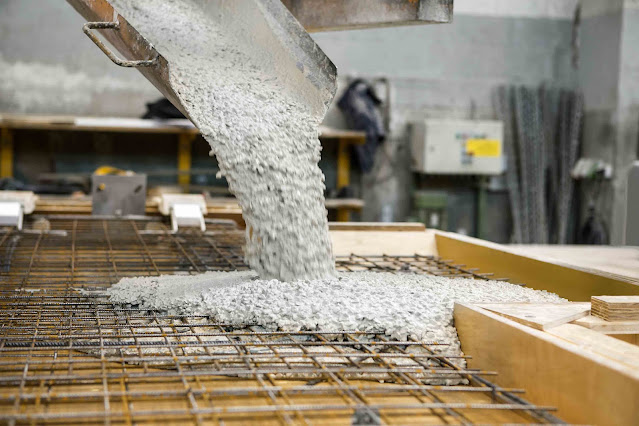Waterproofing Admixture Reduces the Permeability of Concrete hence making it Waterproof
The waterproof admixture
composition for concrete that is disclosed here is used to create concrete with
outstanding anti-corrosive performance. The waterproof admixture composition
can prevent the corrosion of the reinforced concrete by shielding the reinforcing
steel bars from oxidation in the presence of salt. This significantly increases
the durability of reinforced concrete even in salt-damaged areas and other
corrosive environments. The waterproof admixture composition includes silica
fume and fly ash as synthetic pozzolan activators, a redispersible powder
resin, a metal salt with a higher fatty acid content, and a high performance
water-reducing agent. In addition, the composition contains 1 to 5% by weight
of tannin as an antioxidant and 18 to 34% by weight of an inorganic salt.
Concrete becomes more impermeable
when a waterproofing
admixture is added, making the concrete waterproof. Concrete
waterproofing requires the use of a waterproofing admixture, which is made up
of chemicals that are hydrophobic or water-repellent and are derived from
soaps, fatty acids, vegetable oils, and petroleum. When these materials are
combined with concrete, a layer of water repellent material forms next to the
concrete's pores, increasing the concrete's water resistance. Increased
durability during backfill, resistance to delamination, and decomposition are
just a few benefits of integral waterproofing. Both new construction and
maintenance and repair work increase the demand for waterproofing additives.
The majority of concrete
structures typically undergo waterproofing treatments in order to address these
moisture-related issues. However, because the waterproofing treatments involve
applying a waterproof admixture to the surface of concrete structures, the
surface coating is insufficient to adequately protect against moisture for
concrete structures located in highly humid environments and coastal regions.




Comments
Post a Comment